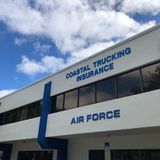Adapting to Regulatory Changes in Trucking Insurance
In the ever-evolving landscape of trucking insurance, staying abreast of regulatory shifts is crucial for carriers navigating Florida's roadways. The Sunshine State boasts a vibrant transportation industry, but its unique regulatory environment requires a keen understanding to ensure compliance and optimized coverage. Let's delve into how trucking companies can navigate regulatory changes in Florida's insurance realm. Keep reading to learn about Independent Trucking Insurance Agency Florida.
Understanding Regulatory Frameworks:
Florida's trucking insurance regulations encompass a spectrum of areas, from liability coverage minimums to specific cargo insurance requirements. Staying compliant means grasping the nuances of these regulations and adapting insurance policies accordingly. For instance, Florida mandates specific insurance minimums based on the type of cargo and vehicle, which can vary significantly from other states.
Adapting to Minimum Liability Limits:
As of 2022, Florida requires varying minimum liability coverage for commercial vehicles based on weight and cargo. Navigating these regulations involves a meticulous approach—ensuring that the insurance coverage meets or exceeds these state-mandated minimums. For trucking companies, understanding these thresholds is vital to avoid penalties and ensure adequate protection in case of accidents.
Cargo Insurance and Special Requirements:
Florida's diverse economy fuels a wide array of cargo transportation needs, each potentially subject to distinct insurance demands. Whether hauling perishable goods, hazardous materials, or oversized loads, compliance with specialized insurance requirements is essential. Carriers must stay informed about any alterations in these regulations to safeguard their cargo and operations effectively.
Impact of Technological Advancements:
The insurance landscape isn't solely shaped by regulatory changes but also by technological advancements. Telematics, IoT devices, and data analytics play pivotal roles in enhancing safety and minimizing risks. Insurers may encourage the adoption of such technologies, offering incentives or revised premiums for companies integrating them into their operations.
Partnering with Knowledgeable Agents:
Navigating these regulatory intricacies requires the guidance of experienced insurance agents well-versed in Florida's trucking industry. Collaborating with an agency specializing in trucking insurance ensures that carriers receive tailored solutions aligned with the state's evolving regulations.
Conclusion:
Adapting to regulatory changes in the Texas Coastal Trucking Insurance Agency demands a proactive approach. Carriers must not only understand the current landscape but also anticipate and prepare for future shifts. By partnering with knowledgeable insurance agencies and maintaining a finger on the pulse of industry trends, trucking companies can not only navigate regulatory changes effectively but also optimize their coverage for sustained success on Florida's roads.
In the dynamic realm of trucking insurance, adapting to regulatory shifts is not merely a compliance requirement but a strategic imperative ensuring the protection and longevity of trucking operations in Florida.
.jpg)
.jpg)

.jpg)
Comments
Post a Comment